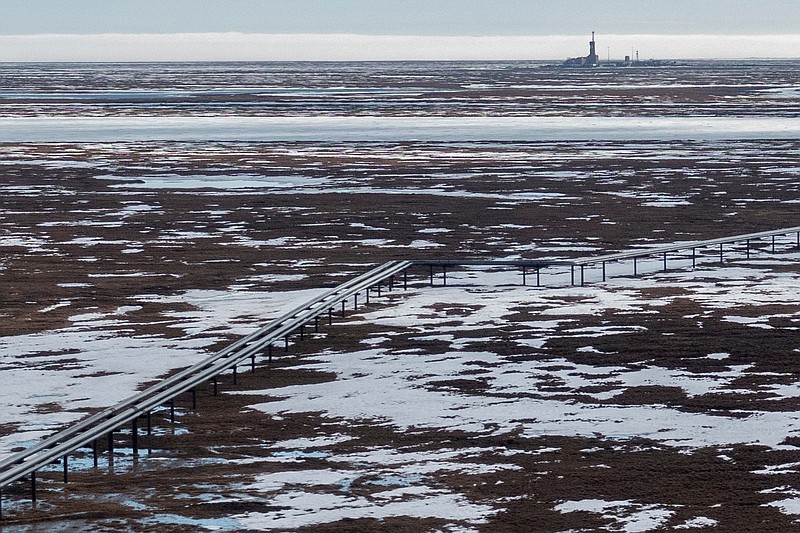A federal judge has upheld approvals for the contentious Alaska oil project Willow, ruling Thursday the Biden administration properly evaluated the project before permitting it earlier this year.
U.S. District Judge Sharon Gleason rejected calls from an Alaska Native group and environmentalists to vacate the Interior Department's decision. Officials for the company behind the project, ConocoPhillips, had said a ruling against them could have killed the project. But for now the initial decision allows it to continue on with construction.
The plaintiffs include Sovereign Iñupiat for a Living Arctic and the Center for Biological Diversity, which filed two related cases. Their lawyers at the environmental firm Earthjustice said they plan to appeal and keep the case alive.
"While today's ruling is disappointing, we are entirely confident in our claims," Earthjustice attorney Erik Grafe said in a statement.
"Beyond the illegality of Willow's approval, Interior's decision to greenlight the project in the first place moved us in the opposite direction of our national climate goals in the face of the worsening climate crisis."
An Interior Department spokesman declined to comment, and ConocoPhillips could not immediately be reached for a response.
Willow has been a top target of climate activists because it is one of the largest oil developments on federal land, which meant that President Biden's Interior Department had the task of evaluating it. Some environmentalists have called it a "carbon bomb" because of its potential to contribute to global warming far into the future.
Slated for the National Petroleum Reserve-Alaska (NPR-A), the nation's largest expanse of public land, Willow is projected to produce 576 million barrels of oil over the next three decades.
Biden had promised to end new oil drilling on federal land. But ConocoPhillips has held leases to drill from the region since the late 1990s, which the president and legal experts said limited his ability to reject the project. He also faced strong political pressure to approve it from key lawmakers in Alaska.
In filing their two cases against the project, opponents lodged several challenges against the federal government and the company. Gleason rejected the vast majority of them and ruled none invalidated the project's approval.
She said the Interior Department had fulfilled its legal obligations to consider the impacts of several different alternatives in line with what she called a clear vision from Congress that large parts of the reserve would be developed for oil and gas production.

